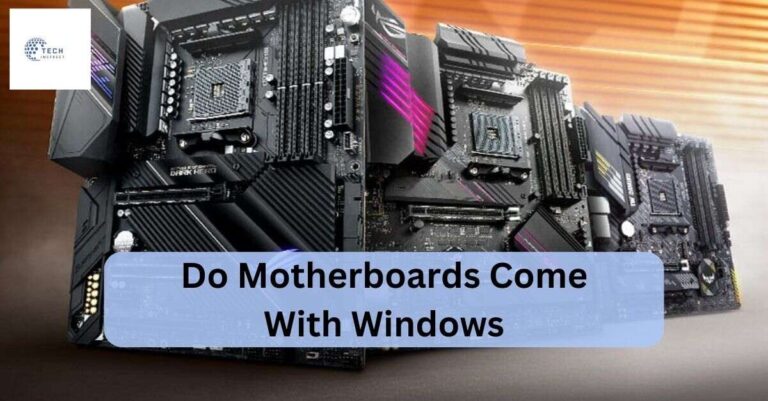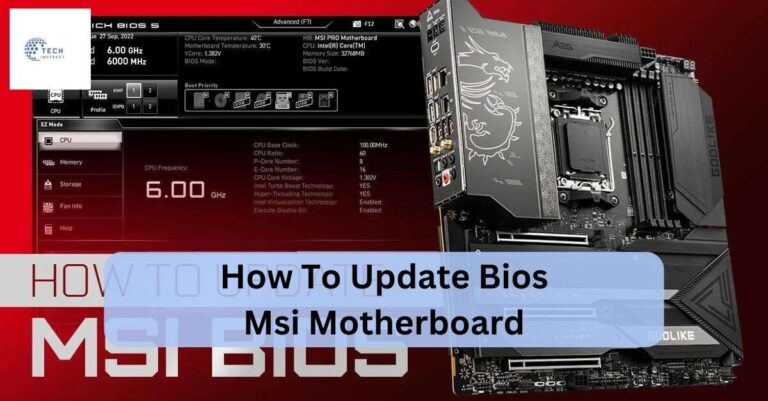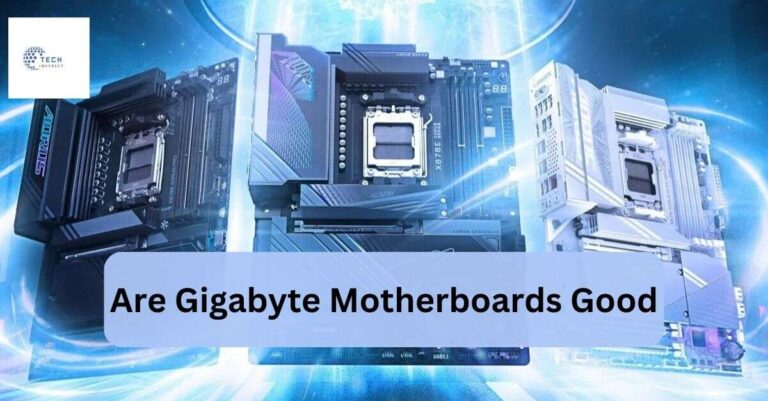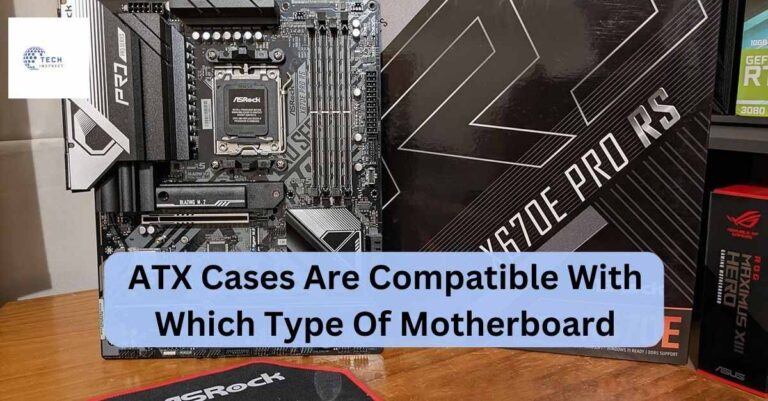What If RAM Speed Is Higher Than Motherboard – A Comprehensive Guide!
“What if RAM speed is higher than motherboard? If the RAM speed is higher than the motherboard’s limit, the system will automatically downclock the RAM to match the motherboard’s supported speed. It’s safe, but you won’t get the full performance of the faster RAM.”
In this article, we’ll dive into what happens when you install faster RAM on a motherboard with a lower speed limit, how it affects system performance, and some practical advice on optimizing your setup.
Can A Motherboard Run Faster Ram?
Yes, but with limitations. While motherboards can technically run RAM that is rated at a higher speed, they won’t fully utilize the potential of that high-speed memory if they are not designed to do so.
The motherboard will automatically adjust the RAM speed to match its supported maximum. For example, if you install 3200MHz RAM on a motherboard that supports a maximum of 2400MHz, the RAM will operate at 2400MHz.

How Does This Work?
The communication between the RAM and the motherboard is controlled by the Memory Controller, which resides in the CPU. When the system starts, the motherboard’s BIOS checks the maximum supported speed for both the memory and the controller.
If the RAM’s speed exceeds the motherboard’s maximum, the BIOS will downclock the RAM to match the motherboard’s highest supported speed.
Let’s say your motherboard supports up to 2400MHz, but you purchase RAM rated for 3600MHz. Instead of getting the full 3600MHz speed, your RAM will run at 2400MHz. This ensures compatibility but sacrifices some of the potential performance that faster RAM can offer.
Will Faster Ram Work On A Slower Motherboard?
Yes, faster RAM will still work on a slower motherboard, but at reduced speeds. RAM is designed to be backward compatible with slower systems. The motherboard will run the RAM at the highest speed it can support, and everything should work fine.
Pros Of Using Faster Ram On A Slower Motherboard:
Future-Proofing: If you plan to upgrade your motherboard or CPU in the future, investing in faster RAM now means you won’t need to buy new memory.
Stability: High-speed RAM is usually made to stricter standards, which can result in more stable performance even when downclocked.
Cons:
Wasted Speed: You won’t be able to fully benefit from the higher speed RAM if your motherboard is slower.
Potential Issues: In rare cases, certain motherboards may struggle with compatibility, leading to system instability, especially if the RAM is overclocked beyond what the motherboard can handle.
Does Ram Speed Affect Performance?
RAM speed does have an impact on overall system performance, but how much it matters depends on what you’re doing with your computer. High-speed RAM can lead to noticeable improvements in certain tasks, but it’s not always a game-changer for everyday computing.

Tasks Where Ram Speed Matters:
Gaming: Many modern games are highly reliant on RAM speed, especially when running high-end GPUs and CPUs. Faster RAM can reduce frame time, making games smoother and more responsive.
Video Editing and 3D Rendering: These tasks often require high memory bandwidth. Faster RAM can lead to faster rendering times and smoother editing experiences.
Multitasking: If you frequently run multiple applications at once, faster RAM helps the system switch between tasks more quickly, especially when dealing with memory-intensive programs.
Tasks Where Ram Speed Is Less Critical:
Web Browsing: For casual browsing or streaming, the difference between 2400MHz and 3600MHz RAM is minimal.
Word Processing and Basic Office Tasks: For simple tasks like writing documents, spreadsheets, or presentations, higher RAM speeds won’t make a noticeable difference.
Is It Safe To Use Faster Ram On A Slow Motherboard?
Absolutely. Using faster RAM on a slower motherboard is generally safe. The memory will automatically adjust to run at the motherboard’s highest supported speed. This feature is built into modern motherboards to ensure compatibility between different components.
Why Is It Safe?
When you install faster RAM, the motherboard’s BIOS automatically configures the RAM to run at a speed that the system can handle. This is called downclocking. Since the system is running within safe parameters, there’s no risk of overheating or damaging any components.
If you’re using higher-speed RAM and want to maximize its potential, check if your motherboard supports overclocking, which allows you to manually increase the RAM’s operating speed within limits set by your system.
Can Ram Speed Mismatch Cause Issues?
Generally, a mismatch between RAM speed and motherboard speed won’t cause significant issues. However, in some cases, you might encounter the following:
Common Issues With Ram And Motherboard Mismatches:
System Instability: Although rare, some motherboards may have trouble automatically adjusting the RAM speed, leading to random crashes or system freezes. This issue is more common in older motherboards that don’t have as much support for newer, faster RAM.
Overclocking Instability: If you try to overclock the RAM beyond what the motherboard is capable of, you may experience system instability, crashes, or boot failures.
Minor Performance Bottlenecks: The motherboard may bottleneck the performance of your RAM, leading to slightly slower performance than what your RAM is capable of.
What Are The Risks Of Using Faster Ram?
There are minimal risks when using faster RAM, but there are a few things to keep in mind:
Wasted Potential:
If your motherboard doesn’t support the speed of the RAM you’ve purchased, you won’t be able to utilize it fully. This is not dangerous, but it does mean you might have paid for performance that your system can’t access.

Potential Overclocking Issues:
While some motherboards support RAM overclocking, trying to push RAM beyond what the motherboard can handle may result in system instability. #
If you overclock RAM without proper cooling or if your motherboard lacks robust overclocking features, it could lead to overheating or crashes.
Future Upgrade Considerations:
Purchasing faster RAM than your current motherboard supports can be a good investment if you plan to upgrade your motherboard or CPU in the future. Faster RAM will be compatible with a more powerful motherboard, allowing you to maximize performance down the line.
How To Get The Most Out Of Your Ram
If you have faster RAM and want to get the most out of it, consider these options:
- Check for BIOS Updates: Sometimes, a simple BIOS update can allow your motherboard to support higher RAM speeds.
- Enable XMP (Extreme Memory Profile): Many motherboards support Intel’s XMP profiles, which allow for automatic overclocking to take advantage of faster RAM speeds.
- Manual Overclocking: If you’re comfortable with advanced settings, you can manually tweak the RAM speed and voltage in the BIOS. However, proceed with caution, as this can lead to instability or overheating if not done properly.
FAQ’s:
What Happens If Ram Speed Is Higher Than The Motherboard?
The RAM will run at the motherboard’s maximum supported speed.
Can A Motherboard Run Ram At Higher Speeds Than It Supports?
No, the motherboard will downclock the RAM to match its supported speed.
Is It Safe To Use Faster Ram Than The Motherboard Supports?
Yes, it’s safe as the system will automatically adjust the speed.
Will Faster Ram Improve Performance On A Slower Motherboard?
No, the motherboard limits the speed, so performance gains will be minimal.
Can Mismatched Ram And Motherboard Speeds Cause Issues?
Typically, no major issues will arise, but there might be occasional stability problems in rare cases.
Conclusion:
“The system will automatically downclock the RAM to match the motherboard’s maximum supported speed, ensuring compatibility and safe operation. While this prevents full use of the faster RAM’s potential, it won’t harm your system, though performance gains will be limited to the motherboard’s capabilities.”







